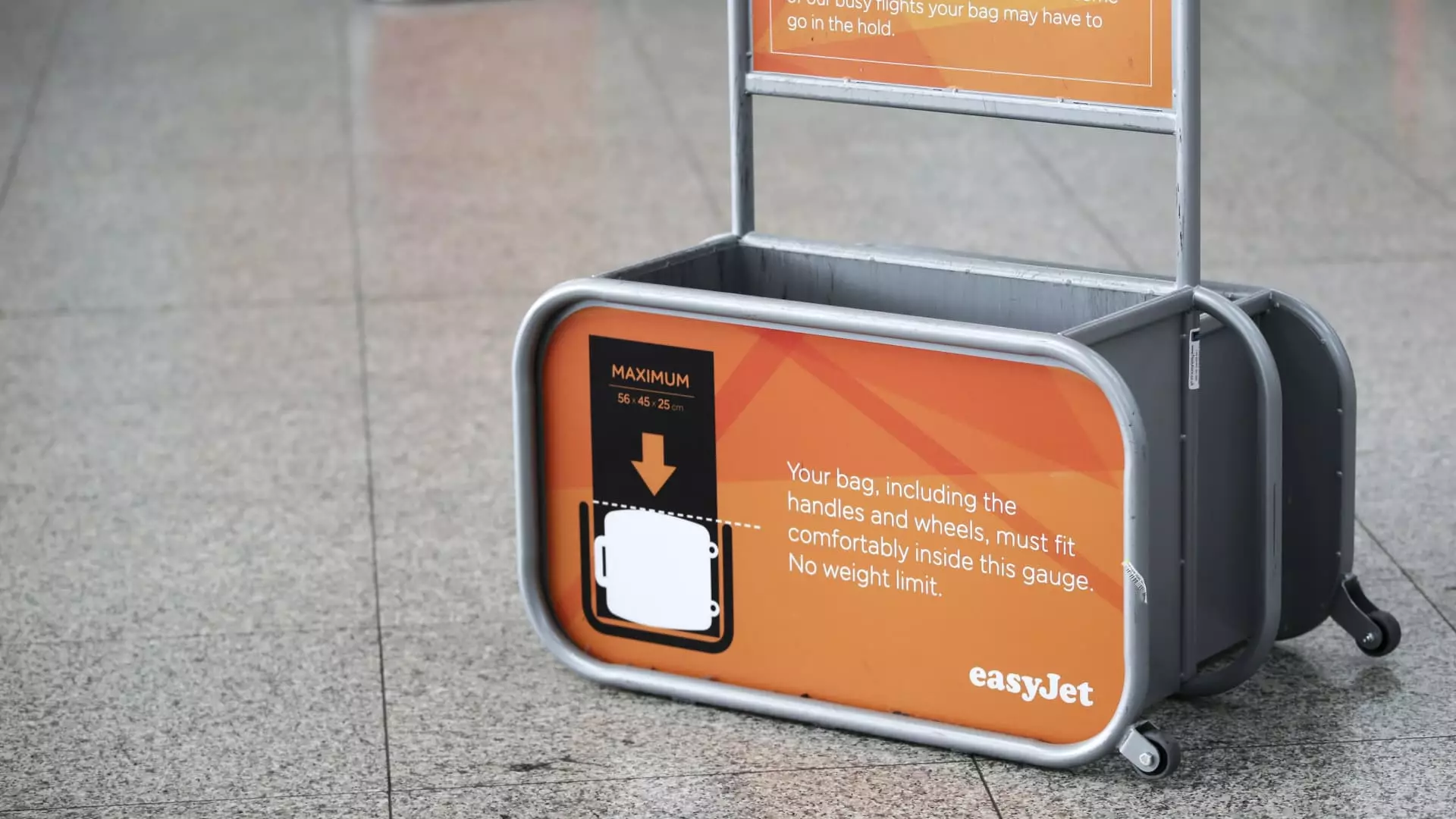EasyJet’s recent financial disclosure offers a fascinating glimpse into the dynamics of the airline industry, particularly regarding profit generation from ancillary services. In the financial year ending in October, EasyJet reported an impressive £3.59 billion (approximately $4.5 billion) earned primarily through additional fees for services like extra baggage, priority boarding, and in-flight meals. This is a significant milestone, reflecting a 22% increase in ancillary revenue, underscoring the airline’s strategic pivot towards monetizing options beyond the basic ticket price.
The figures reveal a substantial shift in the airline’s business model, which mirrors a broader industry trend where carriers strip down base fares to attract price-sensitive travelers while recouping potential losses through add-on charges. For EasyJet, ancillary revenues from its airline segment alone reached £2.46 billion, representing a remarkable 13% increase year-on-year. This trend emphasizes how airlines are increasingly relying on passengers willing to pay for extra services, catering to both cost-conscious travelers and those desiring a more customized travel experience.
Regulatory Challenges and Industry Reactions
However, this revenue model has not come without its challenges. Recently, EasyJet, alongside several other low-cost carriers, faced regulatory backlash in Spain, where the Ministry of Consumer Rights imposed fines totaling €29 million on the airline for what has been termed “abusive practices.” These practices included charging for critical services that many passengers believe should be included in a standard fare, such as hand luggage and adjacent seating for families.
EasyJet’s CEO, Johan Lundgren, was quick to criticize these regulatory actions, asserting a belief that they contradict established European law. His defense hinges on the assertion that the company provides optional products that, while beneficial to some, are not compulsory. Lundgren’s comments highlight the ongoing tension between consumer rights advocates and airlines, where the balance of profit generation and service provision remains contentious. He argues that many customers choose not to utilize these services, suggesting that passengers who opt-in for these extras should not penalize those who opt-out.
The fine has sparked a wave of criticism among airlines like Ryanair and Norwegian, which also find themselves on the regulatory radar. Collectively, these airlines are contesting the fines, showcasing a united front against what they consider disproportionate penalties. This rebellion speaks volumes about the delicate balance airlines must strike between profitability and consumer perception, especially as accusations of price manipulation become prevalent.
Shifting Passenger Trends and Market Dynamics
Despite the regulatory scrutiny, EasyJet’s overall financial performance remains solid. The airline reported a pre-tax profit of £610 million for the full year—an increase of 34% from the previous year. Lundgren attributes this success to a robust summer travel season and a reduction in losses from the prior winter. He emphasized the resilience of European consumers who appear to prioritize travel, hinting at a recovery trend post-pandemic.
In contrast, EasyJet’s rival, Ryanair, reported an 18% decline in half-year profits, despite an uptick in passenger numbers. This disparity may indicate that while demand for air travel is rebounding, final ticket prices are under pressure, potentially due to oversupply following years of demand scarcity. Ryanair’s struggles with aircraft delivery delays further exacerbate its challenges, drawing a clearer picture of the competitive pressures facing budget airlines.
The ongoing debates surrounding ancillary revenues highlight a broader evolution in the airline industry. EasyJet’s strong performance amidst regulatory challenges signifies that consumers are still willing to pay for added conveniences, provided they perceive value in these services. As airlines continue to navigate this complex landscape, balancing customer satisfaction with profit margins will remain a pivotal focus.
The matter of how ancillary fees will be regulated and perceived continues to unfold, and how airlines adapt to these changes could shape the future of air travel. Investors and industry watchers will be keen to observe how EasyJet strategies in this contentious environment while capitalizing on the growing demand for travel across Europe, redefining what budget travel truly means.

